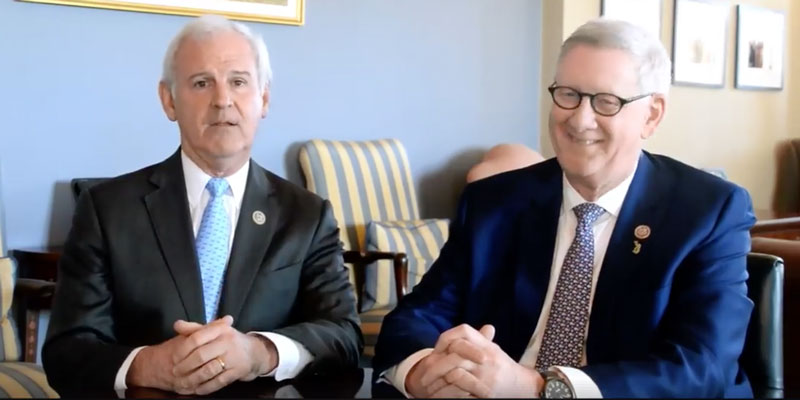Rep. Bradley Byrne (R-Fairhope) introduced the ‘‘Protecting Our Children’s Future Act of 2018” on Thursday, a bill that would significantly alter how Congress passes budgets and appropriates money.The details:
— The bill is an attempt to enforce a strict budget process after a year riddled with continuing budget resolutions.
— “Everyone knows the Congressional budgeting process is broken, but no one seems to want to do anything about it,” Byrne told Yellowhammer News.
— “I’m tired of just talking about the problems. It is time we try to solve them,” he said. “My bill, the Protecting Our Children’s Future Act, would fundamentally alter the way Congress handles taxpayer money and would bring an end to the cycle of governing from one crisis to the next. Most important to me, it will make it easier to cut spending and reduce the national debt.”
— The bill sets up a biennial budgeting process and creates a strict schedule for each congressional chamber to follow throughout each session (see schedule below).
Why this matters:
— In a few key ways, the bill also serves as a reform of Senate procedures. Rep. Byrne, like many other Republican House members, has expressed frustration with Senate procedures for impeding congressional action on various issues.
— The bill limits the amount of time that the Senate can debate appropriations bills, as well as limits senators’ ability to include ‘extraneous’ material in appropriations bills.
— The provision designates any language extraneous “if it authorizes or otherwise establishes one or more Federal agencies or programs, establishes new terms and conditions under which a program or agency operates, authorizes the enactment of appropriations, or otherwise specifies how appropriated funds are to be used.”
— The bill also subjects all appropriations bills to the reconciliation process, which changes the necessary vote threshold for passage from 60 to a simple 51 vote majority.
Another notable provision is the “No Budget, No Pay” provision which would direct congressional payroll administrators to withhold pay for Members if both Houses of Congress have not jointly agreed to a concurrent budget resolution by June 30 of the designated year. When the government shutdown in January, Byrne wrote the House of Representatives’ Chief Administrative Officer and requested that his pay be withheld until the shutdown was resolved.
Don’t miss out! Subscribe today to have Alabama’s leading headlines delivered to your inbox.
